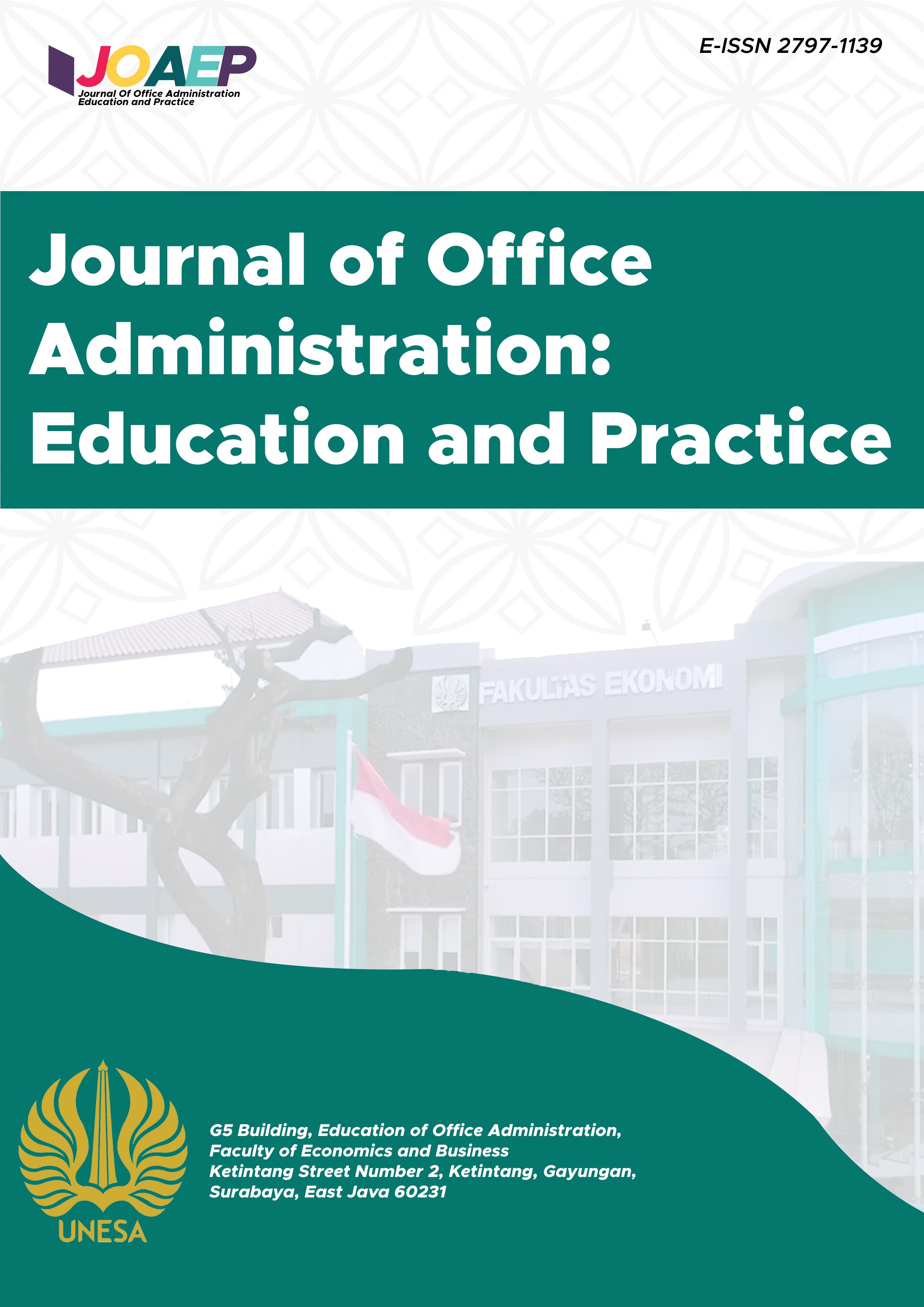A Study on Student Satisfaction and Continuance Intention Application Platform Based on Gamification
DOI:
https://doi.org/10.26740/joaep.v3n2.p95-108Keywords:
Gamification, Online Shop Application, IS, Technology, TAMAbstract
In this era, more and more advanced technology is available, and the technological developments that are made are very helpful to humans. The application of gamification is one of the results of technological advances, namely technological developments combined with the application of the concept of playing games into non-context games. This study aims to analyze the influence of satisfaction and continuance intention on students using gamification applications. This research is variance-based SEM with TAM and ECM models. GSCA application was used to analyze data with 83 respondents. The results of this research are that perceived usefulness has no effect on continuance intention, perceived ease of use influences satisfaction, perceived ease of use has an influence on gamification application value, gamification application value influences satisfaction, gamification application value influences continuance intention, satisfaction influences continuance intention.
Downloads
References
Chugh, R., & Turnbull, D. (2023). Gamification in education: A citation network analysis using CitNetExplorer. In Contemporary Educational Technology (Vol. 15, Issue 2). Bastas. https://doi.org/10.30935/cedtech/12863
Goi, C. L. (2023). Gamification in business education: Visualizing bibliometric networks analysis. Journal of Education for Business, 98(5), 229–241. https://doi.org/10.1080/08832323.2022.2129553
Gunawan, A., Wahyuni, N., & Sheka, V. N. (2021). Kualitas Pelayanan Aplikasi DANA Terhadap Kepuasan Konsumen Quality Of “DANA” Application Services On Consumer Satisfaction.
Huang, C. K., Chen, C. Der, & Liu, Y. T. (2019). To stay or not to stay? Discontinuance intention of gamification apps. Information Technology and People, 32(6), 1423–1445. https://doi.org/10.1108/ITP-08-2017-0271
Husnawiyah, D. (2020). The Effect Of Trust, Competitive Price, And Application Quality On Repurchase Intention Of Online Travel Agent Traveloka. Jember University.
Hwang, H., & Choo, H. (2021). GSCA Pro 1.1 User’s Manual. https://doi.org/10.13140/RG.2.2.28162.61127
Kemp, S. (2023). Digital 2023: Global Overview Report. https://datareportal.com/reports/digital-2023-global-overview-report
Lee, Y. J. (2023). Gamification and the festival experience: the case of Taiwan. Current Issues in Tourism, 26(8), 1311–1326. https://doi.org/10.1080/13683500.2022.2053074
Marsudi, E. K. (2019). Pengaruh Gamifikasi Pada Aplikasi Tokopedia Terhadap Loyalitas Pelanggan. Universitas Atma Jaya Yogyakarta.
Perkasa, F. B. P., & Emanuel, A. W. R. (2020). Gamifikasi sebagai Metode untuk Mendapatkan Customer Loyalty: Review Literatur. AITI, 17(1), 11–21. https://doi.org/10.24246/aiti.v17i1.11-21
Sujatmiko, A. (2021). Pengaruh Kualitas Pelayanan Terhadap Citra Gojek Pada Mahasiswa Fikom Universitas Islam Riau. Riau Islamic University.
Downloads
Published
How to Cite
Issue
Section
 Abstract views: 212
,
Abstract views: 212
, PDF Downloads: 219
PDF Downloads: 219











